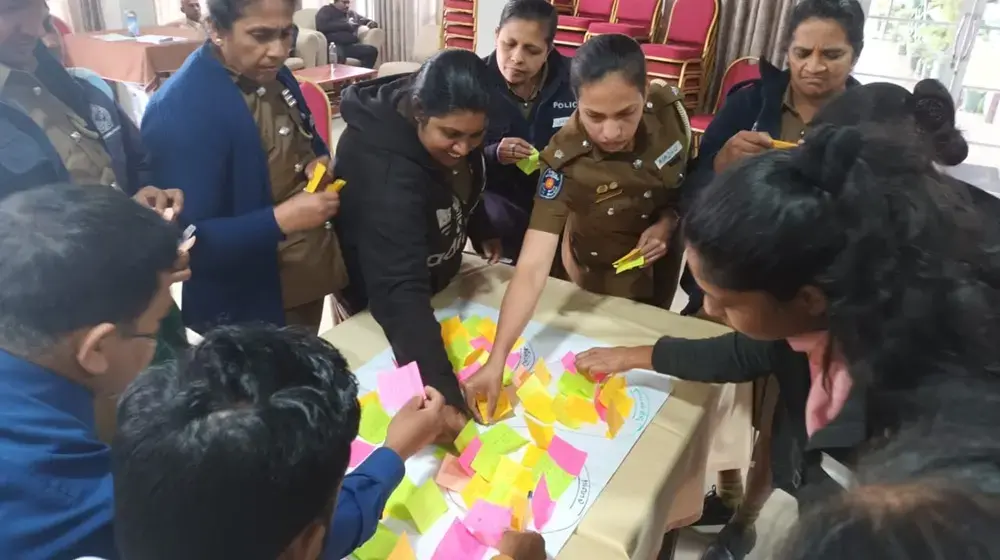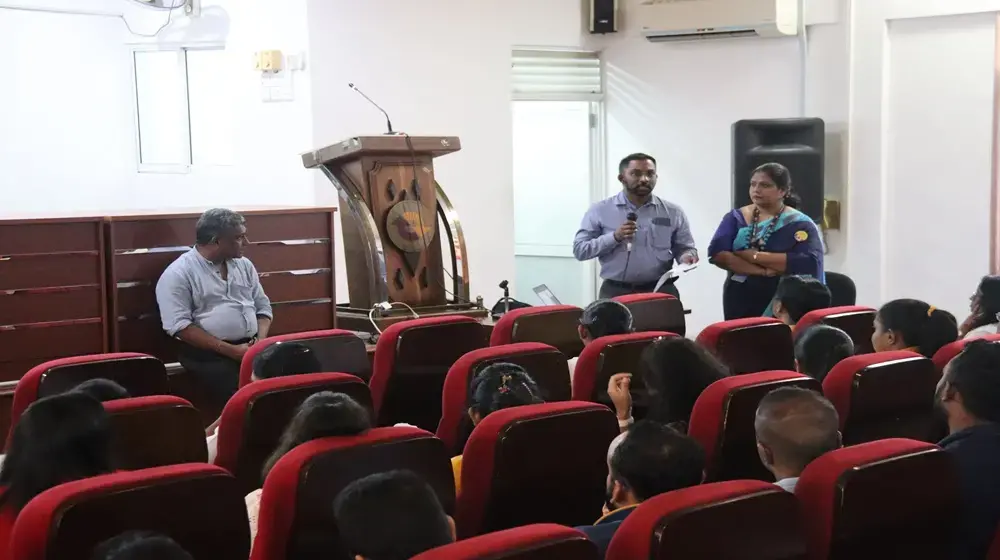COLOMBO, Sri Lanka (24 September 2021): The 2019 Women’s Wellbeing Survey found that one in four (24.9%) women have experienced physical and/or sexual violence since age 15 by a partner or non-partner in Sri Lanka. Intimate partner violence (IPV) is the most common form of violence, impacting millions of women worldwide. COVID-19 lockdown and travel restrictions have disrupted women’s access to life-saving sexual and reproductive health services and have further exacerbated the prevalence of gender-based violence (GBV). The pandemic has also hampered authorities’ ability to respond to GBV, at a time when women and girls need these services the most- affecting the health and wellbeing of mothers and newborns.
Physical, sexual, or psychological harm by a spouse or partner is a major factor in maternal and reproductive health that could even lead to maternal mortality. For example, women suffering from intimate partner violence are less likely to use or even have a say in using contraception, which could likely lead to unplanned pregnancies. Beyond the physical trauma and sexual abuse, the mental health consequences are substantial and could contribute both directly and indirectly, to many negative maternal health outcomes including anxiety, panic attacks, depression, affecting both mother and baby.
To raise awareness on these interlinkages, the United Nations Population Fund (UNFPA) in Sri Lanka once again partnered with Sri Lanka Medical Association (SLMA) to organize a panel discussion on “The impact of SGBV on maternal and child health”. The session built on the dialogue initiated during the plenary session at the 9th International Conference on Birth Defects and the previous SLMA session on the ‘Rights-based approach to delivering comprehensive SRH services for all in the new normal’ and explored the linkages between SGBV, maternal mortality and morbidity, child health, birth defects and disability in the COVID-19 context.
Ms Sharika Cooray, Officer in Charge of UNFPA Sri Lanka stated “Given the overwhelming evidence on the linkages between SGBV and maternal and child mortality and morbidity, SGBV should be considered an urgent priority within programmes and policies aimed at maximizing the wellbeing and survival of women and children.”
Adding to this Dr Padma Gunaratne, President, SLMA stated “Gender-based violence is linked to many negative maternal health outcomes out of which the worse is maternal death. Although it is not accepted as a problem in general in Sri Lanka by many policymakers, there is much intimate partner violence among married and unmarried couples. Therefore, as the oldest National Medical Professional Association in Sri Lanka with a membership of over 4000 medical professionals, I feel it is our duty to speak out against any form of gender-based violence within or outside a relationship.”
The panel discussion, moderated by Ms Madu Dissanayake, Head of Office a.i, UNFPA Bhutan comprised of Ms Niluka Gunawardena, Visiting Lecturer, University of Kelaniya and University of Colombo, Dr Harsha Atapattu, Consultant Obstetrician, Gynaecologist, De Soysa Hospital for Women and Ms Upala Devi, Regional Gender Advisor, UNFPA Asia-Pacific.
Speaking at the discussion, Ms Niluka Gunawardena stated, “Mothers of infants and children with disabilities are often subjected to stigma and violence (micro and overt) due to a prevailing culture of mother blaming and culpability. Ensuring the wellbeing and protection of mothers including demystification and de-stigmatization are of utmost importance.”
The panel discussion followed the spirit of the Nairobi Summit, highlighting that rights and choices for all are a fundamental part of the 2030 Agenda for Sustainable Development.
**ENDS**




